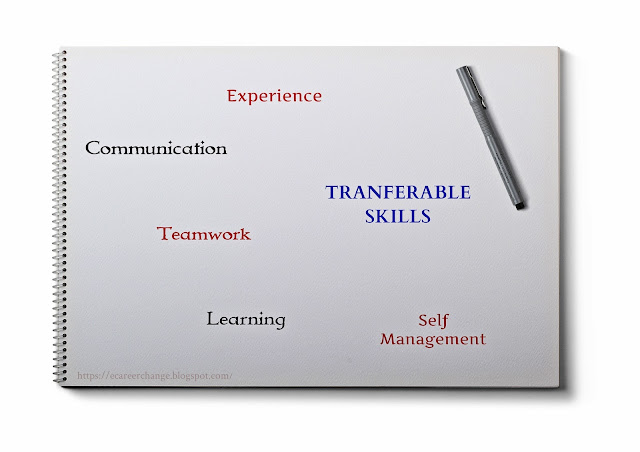Career change
Transferable Skills
transition
work
How to Identify Transferable Skills for Career Change
Transferable skills are those soft skills which one has got to learn in his current organization and would be beneficial for his next job. They include communication skills, how to deal with people, problem solving, leadership and many more. When you decide to switch your job, you need to recognize your transferable skills, and highlight them in your resume or when attending the interview.
So while you are giving a thought for a career change, it is very essential to identify your transferable skills suitable for the career you wish to choose. Transferable skills commonly known as the key skills play an important role in the resume of a candidate.
 |
| Identity Your Transferable Skills |
How to identify your transferable skills
- Evaluate what skills you require
- Evaluate what you skills you possess currently
Where can you find transferable skills
- Job opening advertisements
- Online tools
- Networking in the industry
How can one utilize his or her transferable skills
You can analyze your transferable skills and mention them in your cover letter or resume. While attending the interview, you need to elaborate your transferable skills with certain examples of how these skills were utilized. The employers believe in the previous experiences in which you explain how you used those skills rather than just general talks. It is suggested by career advisers that one should use “skills resume” or “ functional resume” when they are depending on their transferable skills instead of experience relevant to the new job.Display your transferable skills
Be confident and make them believe that you are suitable for the career change. This will only take place if you are successful at displaying your transferable skills. Mentioning them in your resume is beneficial as the employer can just go through the keywords of the transferable skills. You can mention your transferable skills as the key skills in the resume.So while you are giving a thought for a career change, it is very essential to identify your transferable skills suitable for the career you wish to choose. Transferable skills commonly known as the key skills play an important role in the resume of a candidate.

















